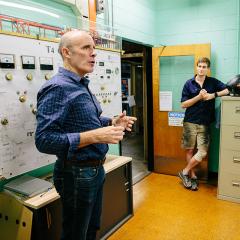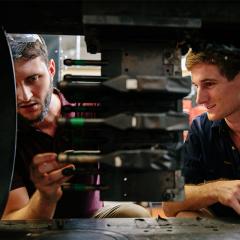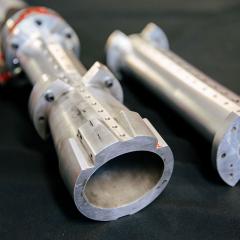The Local Organising Committee for the 33rd International Symposium on Shock Waves is pleased to present the International Colloquium on Shock Waves (ICSW) in the first week of December 2021.
Whilst this year’s symposium, ISSW33, had to be cancelled due to travel restrictions associated with COVID-19, the Local Organising Committee will instead coordinate six seminars from eminent researchers on topics related to shock waves, including hypersonic boundary layer transition measurements, numerical simulation of reactive flows, electric supersonic and hypersonic propulsion, rotating detonation engine flight testing, manipulating hydrodynamic instabilities, and ignition of aluminium particles in a shock tube.
All ICSW sessions will occur on Zoom and are free of charge. Prior registration on Zoom is recommended to receive updates and to avoid missing out if sessions reach capacity.
The ICSW consists of three separate plenary events between 6 and10 December 2021. These events have been scheduled at different times of the day such that at least two sessions should occur at convenient times for participants in all parts of the world.
Each session is three hours in duration and includes two plenary presentations from research leaders in the shock waves community. Session 2 will include a virtual facility tour of the hypersonic wind tunnel facilities at The University of Queensland, and Session 3 will include an awards ceremony from the International Shock Wave Institute (ISWI).
The timing of the three sessions can be seen below, along with links to the pages for each separate plenary event. Please register for the sessions which you are interested in attending so that you can add them to your calendar and receive reminders closer to the date.
All sessions will occur on Zoom and are free of charge. Prior registration on Zoom is recommended to receive updates and to avoid missing out if sessions reach capacity.
| Session 1 Start | Session 1 Finish | Session 2 Start | Session 2 Finish | Session 3 Start | Session 3 Finish | |
| Brisbane (AEST, UTC+10) | Tue 07 Dec 05:00 | Tue 07 Dec 08:00 | Wed 08 Dec 13:00 | Wed 08 Dec 16:00 | Fri 10 Dec 22:00 | Sat 11 Dec 01:00 |
| Sydney (AEDT, UTC+11) | Tue 07 Dec 06:00 | Tue 07 Dec 09:00 | Wed 08 Dec 14:00 | Wed 08 Dec 17:00 | Fri 10 Dec 23:00 | Sat 11 Dec 02:00 |
| Tokyo and Seoul (JST and KST, UTC +9) | Tue 07 Dec 04:00 | Tue 07 Dec 07:00 | Wed 08 Dec 12:00 | Wed 08 Dec 15:00 | Fri 10 Dec 21:00 | Sat 11 Dec 00:00 |
| Beijing and Singapore (CST and SGT, UTC+8) | Tue 07 Dec 03:00 | Tue 07 Dec 06:00 | Wed 08 Dec 11:00 | Wed 08 Dec 14:00 | Fri 10 Dec 20:00 | Fri 10 Dec 23:00 |
| New Delhi (IST, UTC + 5:30) | Tue 07 Dec 00:30 | Tue 07 Dec 03:30 | Wed 08 Dec 08:30 | Wed 08 Dec 11:30 | Fri 10 Dec 17:30 | Fri 10 Dec 20:30 |
| Moscow (MSK, UTC +3) | Mon 06 Dec 22:00 | Tue 07 Dec 01:00 | Wed 08 Dec 06:00 | Wed 08 Dec 09:00 | Fri 10 Dec 15:00 | Fri 10 Dec 18:00 |
| Johannesburg (SAST, UTC +2) | Mon 06 Dec 21:00 | Tue 07 Dec 00:00 | Wed 08 Dec 05:00 | Wed 08 Dec 08:00 | Fri 10 Dec 14:00 | Fri 10 Dec 17:00 |
| Paris, Berlin and Oslo (CET, UTC+1) | Mon 06 Dec 20:00 | Mon 06 Dec 23:00 | Wed 08 Dec 04:00 | Wed 08 Dec 07:00 | Fri 10 Dec 13:00 | Fri 10 Dec 16:00 |
| London (GMT, UTC +0) | Mon 06 Dec 19:00 | Mon 06 Dec 22:00 | Wed 08 Dec 03:00 | Wed 08 Dec 06:00 | Fri 10 Dec 12:00 | Fri 10 Dec 15:00 |
| New York (EST, UTC-5) | Mon 06 Dec 14:00 | Mon 06 Dec 17:00 | Tue 07 Dec 22:00 | Wed 08 Dec 01:00 | Fri 10 Dec 07:00 | Fri 10 Dec 10:00 |
| Dallas (CST, UTC-6) | Mon 06 Dec 13:00 | Mon 06 Dec 16:00 | Tue 07 Dec 21:00 | Wed 08 Dec 00:00 | Fri 10 Dec 06:00 | Fri 10 Dec 09:00 |
| Los Angeles (PST, UTC-8) | Mon 06 Dec 11:00 | Mon 06 Dec 14:00 | Tue 07 Dec 19:00 | Tue 07 Dec 22:00 | Fri 10 Dec 04:00 | Fri 10 Dec 07:00 |
To register for the colloquium, please register below:
Associate Professor Stuart Laurence
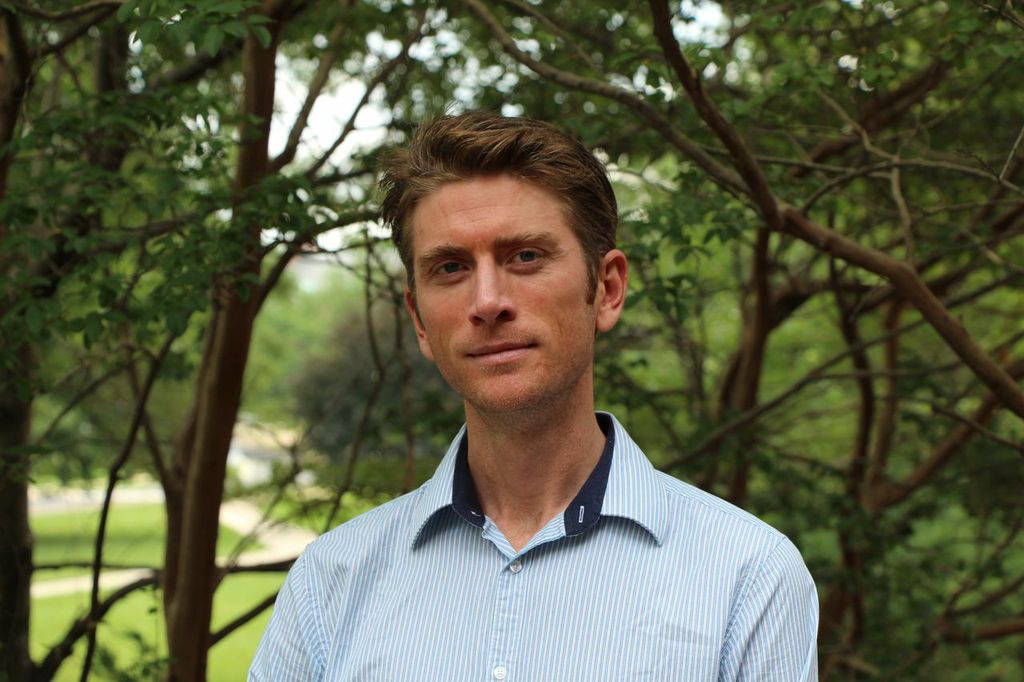 Stuart Laurence is currently an Associate Professor in the Department of Aerospace Engineering at the University of Maryland (UMD). He received his Ph.D. from the Graduate Aeronautical Laboratories of the California Institute of Technology in 2006. From 2009, he was employed as a scientific researcher at the German Aerospace Center (DLR), Goettingen, before joining the faculty at UMD in 2013. His research interests, which are primarily experimental in nature, encompass a range of problems within the general area of high-speed flows, including boundary-layer transition to turbulence, shock-wave/boundary-layer interactions, fluid-structure interactions, multi-body separation, supersonic combustion, and high-altitude flow measurements. A particular focus of his work is the use of high-speed visualization techniques to enhance our understanding of these problems.
Stuart Laurence is currently an Associate Professor in the Department of Aerospace Engineering at the University of Maryland (UMD). He received his Ph.D. from the Graduate Aeronautical Laboratories of the California Institute of Technology in 2006. From 2009, he was employed as a scientific researcher at the German Aerospace Center (DLR), Goettingen, before joining the faculty at UMD in 2013. His research interests, which are primarily experimental in nature, encompass a range of problems within the general area of high-speed flows, including boundary-layer transition to turbulence, shock-wave/boundary-layer interactions, fluid-structure interactions, multi-body separation, supersonic combustion, and high-altitude flow measurements. A particular focus of his work is the use of high-speed visualization techniques to enhance our understanding of these problems.
Dr Marianne Omang
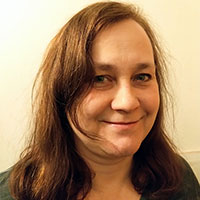 Dr Marianne Omang is a senior researcher working for the Norwegian Defence Estate Agency (NDEA) in their R&D Section. In 2005 Dr Omang completed her PhD from the Institute of Theoretical Astrophysics (ITA) at the University of Oslo. Dr Omang also has a part time position as an Associate Professor at ITA.
Dr Marianne Omang is a senior researcher working for the Norwegian Defence Estate Agency (NDEA) in their R&D Section. In 2005 Dr Omang completed her PhD from the Institute of Theoretical Astrophysics (ITA) at the University of Oslo. Dr Omang also has a part time position as an Associate Professor at ITA.
In the last years the focus of Dr Omang’s work has been on multi-phase problems including shock interaction with inert and reactive particles. Together with her colleagues she has spent quite some time on planning and building up a Laboratory facility for studies of shock and blast waves. A wide range of different experiments are performed here, including phenomena related to ignition and burning of reactive particles both in a shock tube environment as well as in additives of high explosives.
The experimental work is supplemented by numerical simulations using their in-house code Regularized Smoothed Particle Hydrodynamics (RSPH). They have recently extended our code to include a multiphase description and various particle combustion models.
Professor Allan Paull
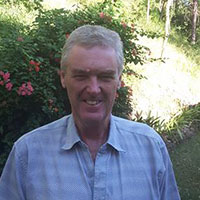 Allan Paull gained his PhD in applied mathematics at the University of Queensland (UQ) and subsequently obtained a MEngSc within the Dept. of Mechanical Engineering at UQ.
Allan Paull gained his PhD in applied mathematics at the University of Queensland (UQ) and subsequently obtained a MEngSc within the Dept. of Mechanical Engineering at UQ.
He has worked for 34 years in hypersonics, primarily in the field of supersonic combustion and flight testing. He was initially employed at UQ as a research assistant on a three month non-extendable contract to Ray Stalker. 20 years later he held the position of ARC Professorial Research Fellow, still working with Ray at UQ.
Whilst at UQ he developed and led the HyShot flight program to establish the correlation between flight and shock tunnel measurements of supersonic combustion. HyShot led to the DARPA sponsored HyCAUSE program which led to the AFRL/DST HIFiRE flight program. In total, he has been the lead for 14 hypersonic flight tests. During the HIFiRE program he was employed at the Defence Science and Technology Group and remained an Adjunct Professor to UQ until 2019, when he rejoined UQ again in the position of DST Chair in Future Hypersonic Technologies where he now concentrates on advanced concepts. He is also the Technical Lead to the Australian Program Office for Advanced Hypersonics and the Technical Advisor to the UQ flight program called STAje-.
Associate Professor Anand Veeraragavan
A/Prof. Anand Veeraragavan's research interests are in supersonic 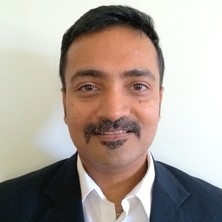 combustion of hydrocarbons, hypersonic aerothermodynamics, advanced optical diagnostics for hypersonic flows and microcombustion based portable power.
combustion of hydrocarbons, hypersonic aerothermodynamics, advanced optical diagnostics for hypersonic flows and microcombustion based portable power.
He is currently undertaking world-leading research in the field of hypersonics and supersonic combustion sponsored by Australian DST, U.S. Air Force Office of Scientific Research (AFOSR) and U.S. Asian Office of Aerospace Research and Development (AOARD). This includes leading the Australian effort in prestigious projects such as ground testing and simulations in support of the Boundary Layer Transition/Turbulence (BOLT II) flight test.
A/Prof. Anand Veeraragavan joined UQ’s School of Mechanical and Mining Engineering as a lecturer in 2012. Anand graduated with a B.Tech in aerospace engineering from the Indian Institute of Technology Madras (IIT-Madras) in 2002. He obtained his MS (2006) and PhD (2009) degrees in aerospace engineering from the University of Maryland.
Professor Jiro Kasahara
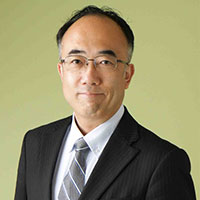 Jiro Kasahara is a professor of the Institute of Materials and Systems for Sustainability, Nagoya University, Japan from 2019.
Jiro Kasahara is a professor of the Institute of Materials and Systems for Sustainability, Nagoya University, Japan from 2019.
He received PhD from the Graduate School of Engineering, Nagoya University at 1997. From 1997 to 1999, he was a JSPS research fellow (PD) at Nagoya University. From 1999 to 2003, he was a research associate of Muroran Institute of Technology, Department of Mechanical System Engineering. From 2003 to 2007, he was a lecturer at the University of Tsukuba, Department of Engineering Mechanics and Energy, and from 2007 to 2013, an associate professor at the University of Tsukuba. From 2013 to 2019, He was a professor of Nagoya University, Department of Aerospace Engineering, before taking his current position. He specializes in detonation and detonation engine systems.
Professor Xisheng Luo
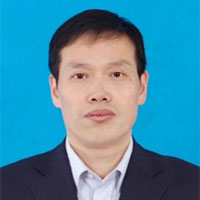 Dr. Xisheng Luo, is a professor of fluid mechanics at the University of Science and Technology of China (USTC). He received his Bachelor degree and Master degree in USTC at 1994 and 1997, respectively. After two years teaching at USTC, he went to Eindhoven University of Technology and received a Doctorate degree in Fluid Mechanics in 2004.
Dr. Xisheng Luo, is a professor of fluid mechanics at the University of Science and Technology of China (USTC). He received his Bachelor degree and Master degree in USTC at 1994 and 1997, respectively. After two years teaching at USTC, he went to Eindhoven University of Technology and received a Doctorate degree in Fluid Mechanics in 2004.
Then he has worked in the Shock Wave laboratory of Aachen University as a postdoc for four years. In 2008 he returned back to USTC and was appointed as a full professor. His research interest includes high-speed flow and interfacial instability. His research team developed a new method for generating convergent shock and extended soap film technique for interface formation. The work of the team led by Dr. Luo has published more than 20 JFM paper and 1 PRL paper on the interfacial instability induced by shock wave.
Professor Gopalan Jagadeesh
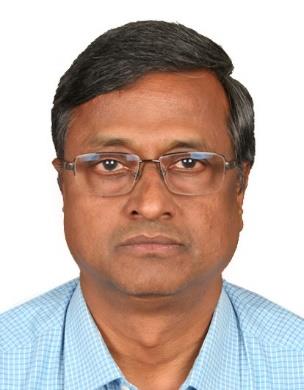 Prof. Gopalan Jagadeesh is currently working as a professor in the Department of Aerospace Engineering, Indian Institute of Science (IISc) Bangalore, India. He is the Founder Chairman of Centre of Excellence in Hypersonics, IISc, Bangalore. He is also the Founder Director of Super- wave Technology Pvt. Ltd. a company formed with equity participation from IISc to commercialize several of his discoveries related to shock waves. Prof. Jagadeesh is one of the leading researchers in Hypersonic Aerothermodynamics and shock wave propagation in complex fluids, which are the most advanced fields of research relevant to space, defense and terrestrial applications. He has published over 300 papers in peer reviewed International Journals, conferences and edited 3 books. He has TWENTY-FIVE PATENTS on various discoveries related to Shock Waves and hypersonic flow control. He is currently the President of the International Shock Wave Institute and the also the Society for Shock Wave Research India.
Prof. Gopalan Jagadeesh is currently working as a professor in the Department of Aerospace Engineering, Indian Institute of Science (IISc) Bangalore, India. He is the Founder Chairman of Centre of Excellence in Hypersonics, IISc, Bangalore. He is also the Founder Director of Super- wave Technology Pvt. Ltd. a company formed with equity participation from IISc to commercialize several of his discoveries related to shock waves. Prof. Jagadeesh is one of the leading researchers in Hypersonic Aerothermodynamics and shock wave propagation in complex fluids, which are the most advanced fields of research relevant to space, defense and terrestrial applications. He has published over 300 papers in peer reviewed International Journals, conferences and edited 3 books. He has TWENTY-FIVE PATENTS on various discoveries related to Shock Waves and hypersonic flow control. He is currently the President of the International Shock Wave Institute and the also the Society for Shock Wave Research India.
Professor Elaine Oran
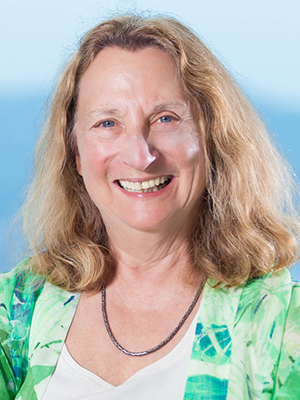 Elaine S. Oran is O’Donnell Foundation Chair and Professor in the Department of Aerospace Engineering at Texas A&M University. Previously she was the A. James Clark Distinguished Professor and the Glenn L. Martin Institute Professor at the University of Maryland. For many years before that, she was the Senior Scientist for Reactive Flow Physics at the US Naval Research Laboratory in Washington, DC. She received an A.B. in chemistry and physics from Bryn Mawr College and both a M.Ph. in Physics and a Ph.D. in Engineering and Applied Science from Yale University. She is a Member of the National Academy of Engineering, an Honorary Fellow of the AIAA, and a Fellow of the American Academy of Arts and Sciences, the Combustion Institute, the APS, AIAA, ASME, and SIAM. She received the Zeldovich Gold Medal from the Combustion Institute and the Fluid Dynamics Prize from the American Physical Society. Currently her research interests include chemically and nuclear reactive flows, turbulence, numerical analysis, high-performance computing, shocks and shock interactions, and rarefied gases, with applications to combustion, propulsion, and all sorts of explosions ranging in scale from micro-dynamical to astrophysical. Her most recent efforts involve developing a large-scale experimental facility to study fundamental questions in shock interactions and detonations.
Elaine S. Oran is O’Donnell Foundation Chair and Professor in the Department of Aerospace Engineering at Texas A&M University. Previously she was the A. James Clark Distinguished Professor and the Glenn L. Martin Institute Professor at the University of Maryland. For many years before that, she was the Senior Scientist for Reactive Flow Physics at the US Naval Research Laboratory in Washington, DC. She received an A.B. in chemistry and physics from Bryn Mawr College and both a M.Ph. in Physics and a Ph.D. in Engineering and Applied Science from Yale University. She is a Member of the National Academy of Engineering, an Honorary Fellow of the AIAA, and a Fellow of the American Academy of Arts and Sciences, the Combustion Institute, the APS, AIAA, ASME, and SIAM. She received the Zeldovich Gold Medal from the Combustion Institute and the Fluid Dynamics Prize from the American Physical Society. Currently her research interests include chemically and nuclear reactive flows, turbulence, numerical analysis, high-performance computing, shocks and shock interactions, and rarefied gases, with applications to combustion, propulsion, and all sorts of explosions ranging in scale from micro-dynamical to astrophysical. Her most recent efforts involve developing a large-scale experimental facility to study fundamental questions in shock interactions and detonations.
Local Organising Committee:
ICSW Co-chairs and Emcees:
Dr Chris James and Dr Tristan Vanyai, The University of Queensland.
Other Panel members:
Professor Richard Morgan, The University of Queensland (Co-chair of the now cancelled ISSW33).
Associate Professor Harald Kleine, The University of New South Wales (Co-chair of the now cancelled ISSW33).
Emeritus Professor David Mee, The University of Queensland.
International Advisory Committee:
| Toshiyuki Aoki | Nicholas Apazidis | Elangannan Arunan | ||||
| Joanna M. Austin | Gabi Ben-Dor | Riccardo Bonazza | ||||
| Martin Brouillette | Bianca Capra | Veronica Eliasson | ||||
| Nikita Fomin | Kazuhisa Fujita | Sudhir Gai | ||||
| Walter Garen | Victor Golub | Jagadeesh Gopalan | ||||
| Abdellah Hadjadj | Ronald Hanson | A. Koichi Hayashi | ||||
| Hamid Hosseini | Lazhar Houas | Ozer Igra | ||||
| Jeff Jacobs | In-Seuck Jeung | Zonglin Jiang | ||||
| Georges Jourdan | Gennady Kanel | Valeriy Kedrinskiy | ||||
| Boo Cheong Khoo | Heuy Dong Kim | Harald Kleine | ||||
| Konstantinos Kontis | Irina Krassovskaya | Achim Loske | ||||
| Frank Lu | Kazuo Maeno | Matt McGilvray | ||||
| David Mee | Richard Morgan | Christian Mundt | ||||
| Rho Shin Myong | Charles Needham | Herbert Olivier | ||||
| Marianne Omang | Marcello Onofri | Randall Paton | ||||
| K.P.J. Reddy | Oren Sadot | Yoshitaka Sakamura | ||||
| Akihiro Sasoh | Friedrich Seiler | Kazuyoshi Takayama | ||||
| Evgeny Timofeev | Zbigniew Walenta | Chih-yung Wen | ||||
| Ji Ming Yang | Evgeny Zaretsky | |||||
The International Symposia on Shock Waves (ISSW) are the meetings of the scientific community devoted to the study and the use of shock-wave related phenomena and their applications. Since the inception of the ISSW in 1957, ISSW has served as authoritative platform for the international scientific community to meet and exchange ideas on the study of shock-wave related phenomena and their applications. The ISSW is held once every two years, frequently at venues in close proximity to centres of activity in the field.
Shock waves are generated in various media such as gases, liquids, and solids, and are often accompanied by interesting yet complicated interactions. The extensive range of topics covered by the presentations may be divided into numerous applications, such as combustion, high-speed flight, detonations, propulsion, physical chemistry, materials, medicine, biology, and geology; the use and development of devices and facilities that generate shock waves, such as shock tubes and shock tunnels, with the associated technology including measurement and diagnostic techniques, as well as fundamental studies such as reflection and refraction of shocks, their interaction with vortices, Richtmyer-Meshkov instabilities, chemical kinetics, and many other important phenomena.
The last ISSW was hosted in Singapore in 2019 (https://www.issw32.org/). Due to the ongoing COVID-19 pandemic, the ISSW33 in Brisbane, Australia, in 2021 was cancelled, and the next ISSW will be ISSW34 in Busan, South Korea, in 2023. Following the recommendation of the IAC, ISSW35 will revert to Brisbane, Australia, in 2025.
ISSW is supported by the International Shock Wave Institute (ISWI) (https://www.iswi.jp/web/) and the ISSW International Advisory Committee.
Important work in the field of Shock Waves is chronicled in the journal Shock Waves (https://www.springer.com/journal/193).
Get in touch
The International Colloquium on Shock Waves (ICSW) is led by Dr Chris James.

